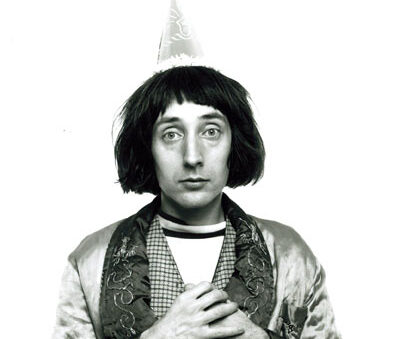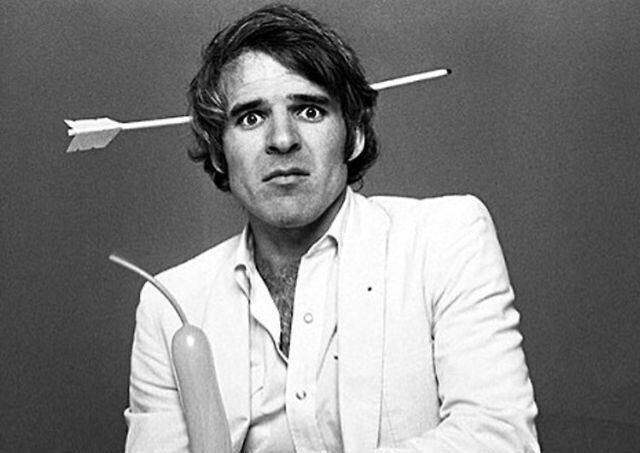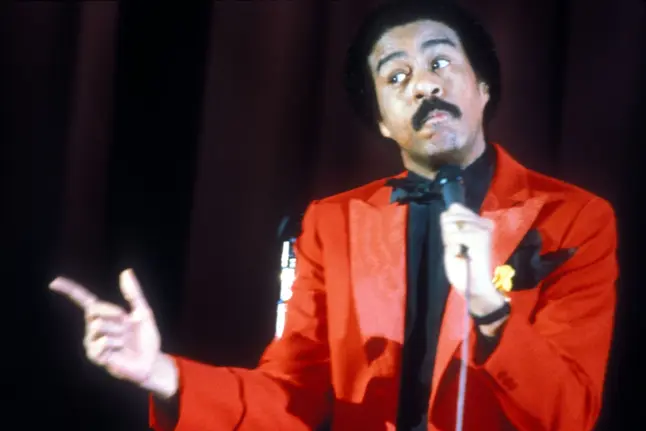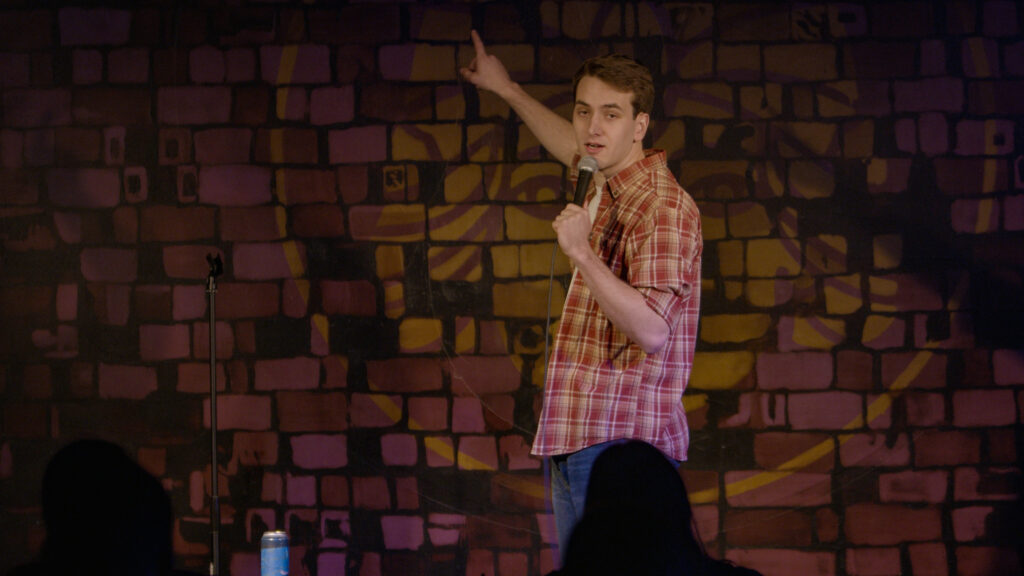Does Stand Up Comedy
Need To Be Honest?
Be funny, be honest
While there are no hard rules in the world of stand up comedy, I think there are things all comedians strive to be. First and foremost to be funny, and second, to be honest. While nobody debates whether or not a comedian should be funny, the role of honesty has been brought up more and more in recent years. What honesty looks like in stand up can look different from act to act, and the way comedians play with the truth might not all be the same. Is truth even necessary for comedy and if so, what roles does it have in stand up?
Now, I’m sure many of you are reading this and are already making a list of times when a comedian’s joke was a lie, or fiction, but still very funny. This is why I think it’s necessary to further define what honesty in comedy looks like, as it’s not always surface-level. For example, comedians often exaggerate parts of stories for comedic effect, or they create a fictional scenario to set up a joke. This does not inherently make the joke dishonest, for example, Emo Phillips’ famous “Heretic” joke: (Video Here)
Last week I saw this guy on a bridge about to jump. I said, "Don't do it!" He said, "Nobody loves me." I said, "God loves you. Do you believe in God?"
He said, "Yes." I said, "Are you a Christian or a Jew?" He said, "A Christian." I said, "Me, too! Protestant or Catholic?" He said, "Protestant." I said, "Me, too! What franchise?" He said, "Baptist." I said, "Me, too! Northern Baptist or Southern Baptist?" He said, "Northern Baptist." I said, "Me, too! Northern Conservative Baptist or Northern Liberal Baptist?"
He said, "Northern Conservative Baptist." I said, "Me, too! Northern Conservative Baptist Great Lakes Region, or Northern Conservative Baptist Eastern Region?" He said, "Northern Conservative Baptist Great Lakes Region." I said, "Me, too!"
Northern Conservative Baptist Great Lakes Region Council of 1879, or Northern Conservative Baptist Great Lakes Region Council of 1912?" He said, "Northern Conservative Baptist Great Lakes Region Council of 1912." I said, "Die, heretic!" And I pushed him over.
Emo Phillips
There is obvious dishonesty in this joke. The joke wouldn’t be funny without the dishonesty. We assume Emo Phillips didn’t have this conversation last week, we also assume that Emo didn’t actually push a man off of a bridge, and we can even assume that the conversation itself isn’t real, because no one speaks in that perfect of dialogue. Despite all the lies we have to believe for the joke to be funny, it is the honesty of the joke that is what makes it legendary. That might be confusing. The joke is predicated on tons of lies and yet is actually incredibly honest? Well, what is the honesty of the joke? It’s the subtext of it. The honesty at the core of the joke is that people will find the smallest reasons to form division. A great observation that is highlighted by the structure of the joke.

You see, the lies told in the joke, aren’t presented for the listener to believe them, but rather used as comedic devices to make funny the truth being presented. The idea happened “last week”, which we know as a lie, but by making this story more recent the stakes of the situation are raised. It feels more present, conversational, and more pressing of a story. Pushing someone off a bridge is obviously fiction, but if Emo’s reaction to their minor religious differences was also small and rational it wouldn’t be funny. Having an inappropriate to reaction to the response is what makes the joke humorous. Furthermore, the conversation not being real is also an acceptable lie, as the joke is clearly a story of fiction. It is what lets the listener know, that is a joke, and not reality. All lies we must accept to laugh at the comedic truth.
Sometimes, it’s overly obvious honesty that is what makes a joke funny. For example, Steve Martin once said.
Boy, those French! They have a different word for everything.
Steve Martin
It’s such an obvious truth that when you hear someone say it so plainly it’s funny. This joke is derived from the exaggerated obviousness of the truth. We laugh because he is playing a character that is too dumb to understand that having a different word for everything is the basis of different languages. The comedic truth/subtext at this joke is that Steve Martins’ stage persona is a fool. The truth is used to further define his character. At the same time, Steve has jokes that are nothing but dishonest, as he likewise leans into his character or persona on stage.
I gave my cat a bath the other day...they love it. He sat there, he enjoyed it, it was fun for me. The fur stuck to my tongue, but other than that...
Steve Martin
The honesty at the core of both of these jokes is the same. Steve is an idiot. He is playing a character and the characters’ whole thing is that they have a skewed perception of the world that he exaggerates to be funny. The honesty at the core of all of this is that we all are in on the fact that Steve Martin, the man on stage, is a character played by Steve Martin, the man off stage. This is essentially the groundwork for what is “alt-comedy” or parody in stand up.

The part of a joke that needs, to be honest, is the underlying subtext of the joke. The rest can be a lie or exaggerations that are used for amplification or comedic effect. Character comics don’t have to be honest because the audience is aware that they are not being honest for the sake of comedic effect. By exaggerating how dumb or dishonest something is, it becomes obvious that the truth you are presenting is in direct contrast to what you are saying. This is what satire looks like in stand up comedy defined formally as, “irony, exaggeration, or ridicule to expose and criticize”. In the tone of satire, someone might say, “I just LOVE politicians, they’re perfect and can do no wrong”. We can delineate that the the truth behind what they’re saying is the opposite, politicians aren’t perfect, and often do wrong.
Now that we have a 5th-grade level of understanding of what comedic subtext is, and how to break down what is honest in parody/satire/character/alt comedy; it is important to point out that The VAST majority of comedians present as themselves on stage. A person on stage with a microphone sharing their thoughts and perspectives with the world through a comedic lens. The person on stage is the same as the person off stage. Unlike sketch or improv comedy it is often assumed that stand up comedians are portraying their own actual beliefs on stage through the subtext of their jokes. The audience is led to believe that what the comedian is saying is their actual viewpoints and their stories. As a result of this, they are held to a higher set of standards by their audiences when it comes to being honest.
Crowds can often sense dishonesty, and when it’s apparent it can be a massive turn-off in most rooms. For example, if an Italian comedian went on stage and talked about how hard it is to be from Bosnia, it would be disingenuous. How can an Italian know the authentic experience of being Bosnian if they are not Bosnian? As opposed to a comedian from Bosnia sharing their funny observations about being from Bosnia. Your perspective is invalidated if your life experiences and background don’t match with what you are presenting. The same could go with any sort of incongruity between a comedian and their material; whether it be race, sex, class, work life, social etc. The exploitation of identity Vs the genuine exploration of it is something I plan on writing about soon.

Some comics hide it better than others, and some have even become wildly successful in living a lie. If their fans were to realize who they are off stage it would invalidate their entire act. Their following would shrink realizing that the person whom they once identified with was presenting a dishonest viewpoint. When a comedian presents as themselves, they should be held to present as their honest self. If a comedian shares a crazy story of something that happened to them, it should be a real story, that is what crowds are led to believe. Yes, it can exaggerated. Yes, it can have the details changed. Yes, it can be altered for comedic effect. However, the very essence of the story must be true. If the story doesn’t have to be real then you might as well have AI writing comedic takes and stories for you.
What it all boils down to is honesty or honest subtext is what makes stand up comedy human. That is what makes the art form personal. It’s why stand up feels different from any other style of comedic presentation. In a world of animation, video sketches, comedy theater, and so on… It is the raw truth of just the person behind a microphone that makes stand up comedy live on. There is a certain level of vulnerability behind performing your beliefs and stories as an honest version of yourself. There is a risk that the audience won’t agree or will fail to identify with your perspective in a way that connects. However, that risk is what allows comedians to find their real fans and followers who do identify and laugh along. As I stated up top comedians should be funny, and honest. Without both the art form carries little merit.


